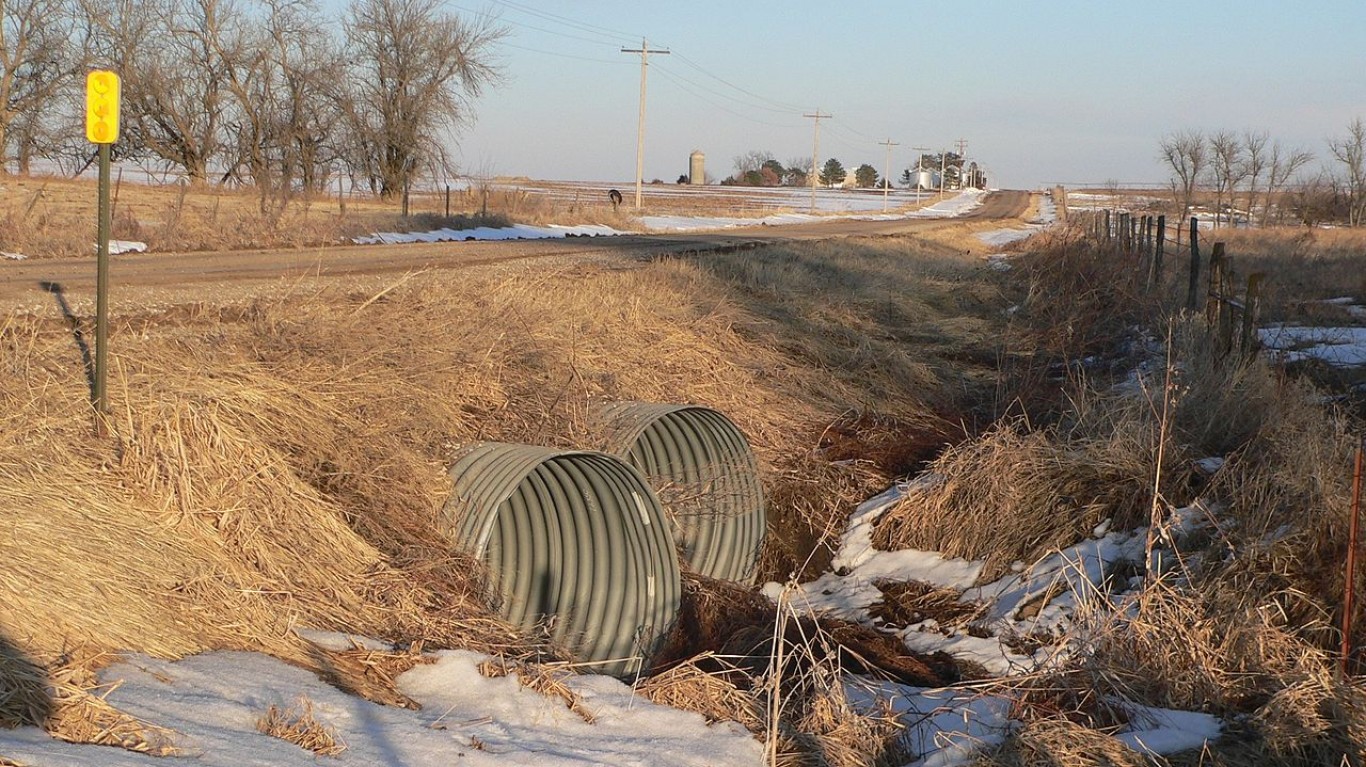Health and Healthcare
COVID-19: This Is the Deadliest County in America

Published:

The rate of the spread of COVID-19 had slowed across America. Increases in daily fatal and confirmed cases are still about half what they were seven weeks ago. Nevertheless, 567,894 Americans have died, which is about 20% of the world’s total. Confirmed cases have reached 31,442,604, or about 23% of the global number. Hospitalizations, which were over 100,000 a day during the peak wave, dropped into the thousands.
However, the Centers for Disease Control and Prevention (CDC) and several media sources show that cases have started to rise again in well over half the states in America, currently led by Michigan.
Much of the country has “opened up,” which has caused worries that there will be a fourth wave of the disease. Just two weeks ago, the nation’s newspapers were filled with reports of large college parties in Florida with hundreds of people in close proximity without masks. More people flew over the Easter weekend than any other weekend since the start of the pandemic. This kind of activity has led to public health officials predicting that fourth wave.
Michigan recently asked the federal government for additional vaccines because of the rising spread of COVID-19 there. The request was denied, but the head of the CDC suggested the state be shut down to resolve the problem.
Variants of the disease are among the dangers epidemiologist and public health officials worry about. At least one, first identified in the United Kingdom, now accounts for most new U.S. cases. This variant also could be more deadly. The CDC currently tracks three variants for the public on its website. It has 20,915 cases of the B.1.1.7 variant reported across all 50 states. There are 453 cases reported of the B.1.351 variant across 36 states, and 497 reported cases of the P.1 variant across 31 states. Several other variants have emerged that the CDC does not report on to the public. This is the state with the most variants.
The pace of the spread of the disease remains in part a race between vaccinations and the rising number of potentially dangerous variants. So far, 36% of the adult population has received at least one dose of vaccine and 22% are fully vaccinated. While the Pfizer and Moderna vaccines require two shots, the one from Johnson & Johnson requires just a single dose. According to The New York Times, 237,796,305 doses have been delivered in the United States and 189,692,045 of them (80%) have been administered.
One way that public health officials and epidemiologists measure the spread of the disease is by cases and deaths per 100,000 people. This allows for comparisons among places with widely varying populations. The deadliest county in America is Nuckolls County, Nebraska, where the 14-day average death rate per 100,000 people is 16.71. This county is in the center of the state, on the Kansas border, southwest of Omaha.
Nuckolls County has a population of 4,148, according to the Census Bureau. Almost 94% of the population is white. The median household income at $43,388 is over $20,000 below the national number. The 11.2% poverty rate is about the same as the U.S. figure.
Nuckolls County shares one characteristic with the other deadliest counties. It is a small county, by population, and it is rural.
Click here to see which state was first to give half its residents the vaccine.
The average American spends $17,274 on debit cards a year, and it’s a HUGE mistake. First, debit cards don’t have the same fraud protections as credit cards. Once your money is gone, it’s gone. But more importantly you can actually get something back from this spending every time you swipe.
Issuers are handing out wild bonuses right now. With some you can earn up to 5% back on every purchase. That’s like getting a 5% discount on everything you buy!
Our top pick is kind of hard to imagine. Not only does it pay up to 5% back, it also includes a $200 cash back reward in the first six months, a 0% intro APR, and…. $0 annual fee. It’s quite literally free money for any one that uses a card regularly. Click here to learn more!
Flywheel Publishing has partnered with CardRatings to provide coverage of credit card products. Flywheel Publishing and CardRatings may receive a commission from card issuers.
Thank you for reading! Have some feedback for us?
Contact the 24/7 Wall St. editorial team.